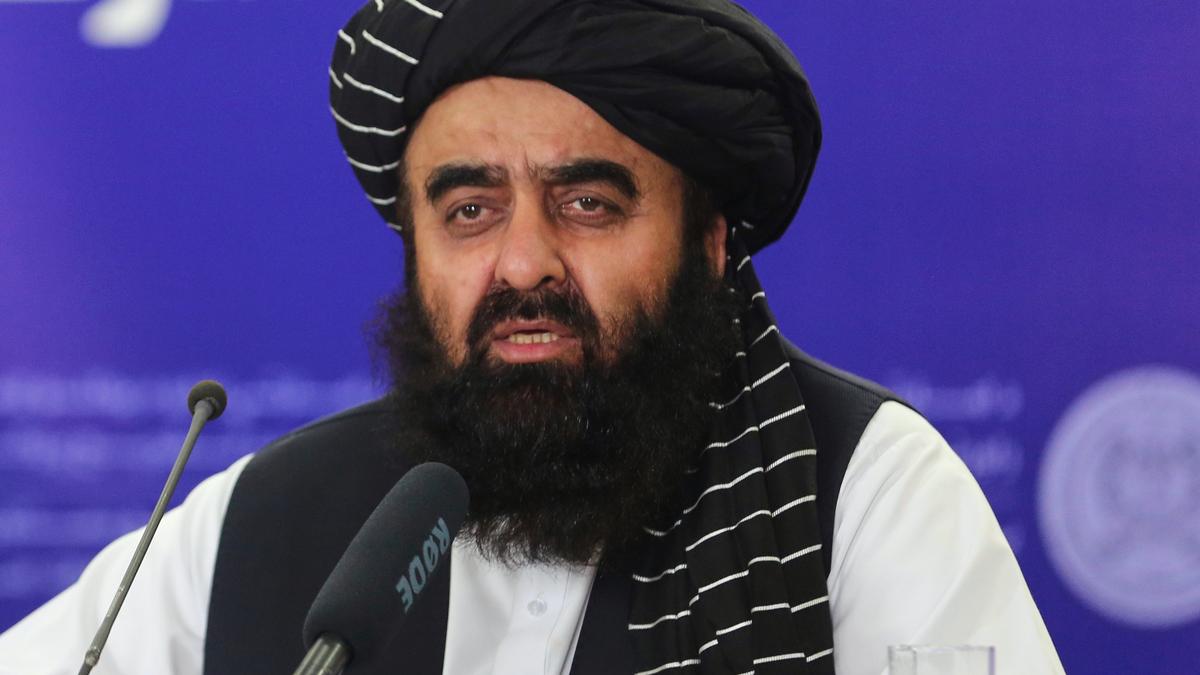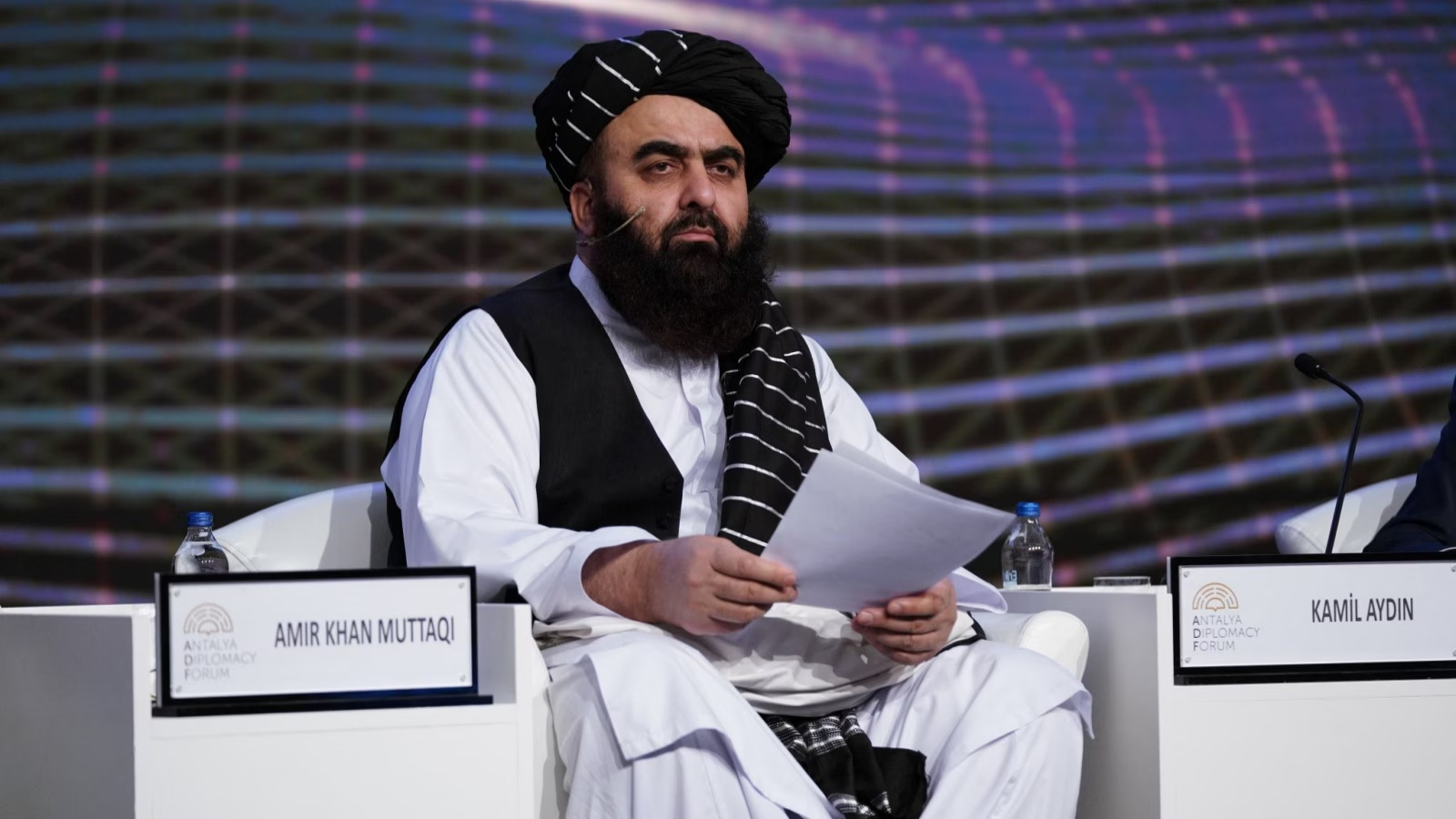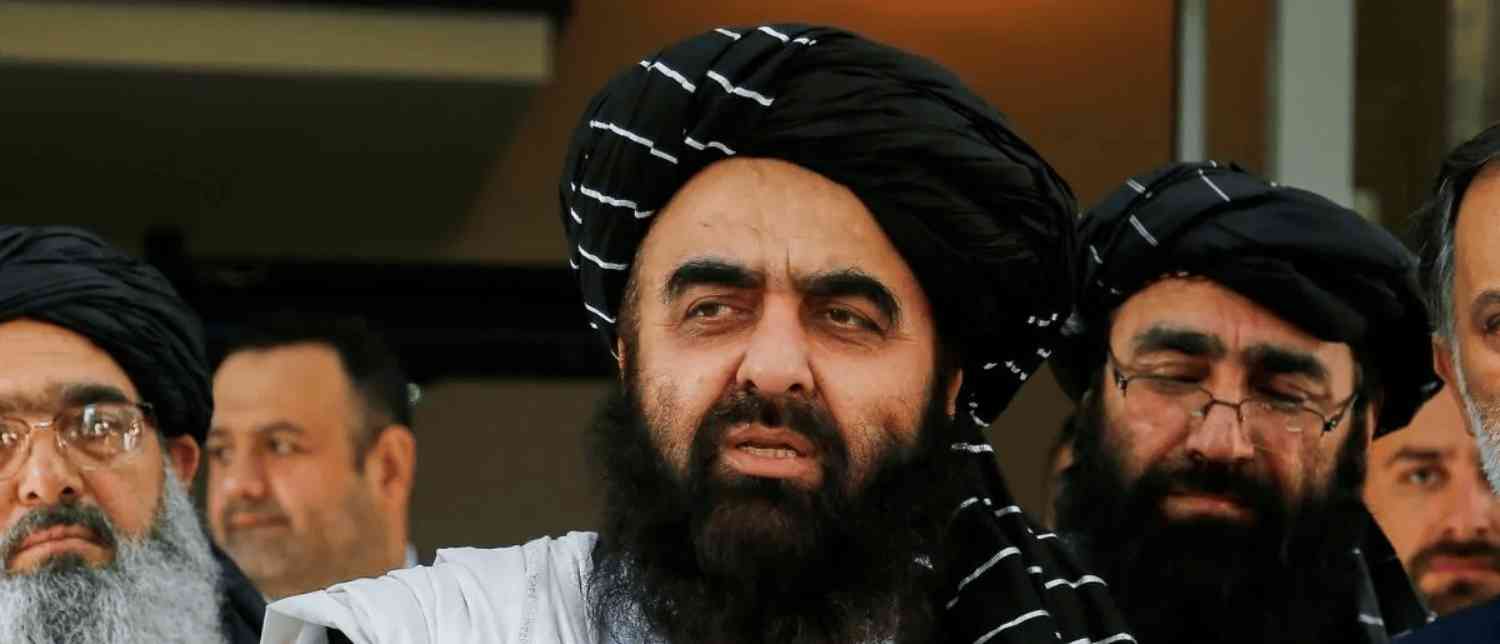In what can only be described as a landmark diplomatic development, Taliban foreign minister Amir Khan Muttaqi is scheduled to visit India next week for a meeting with External Affairs Minister S. Jaishankar. This visit, which begins on October 10, will be the first time a senior Taliban leader has stepped foot in New Delhi since the group seized power in Afghanistan following the collapse of the Ashraf Ghani government in August 2021.
Muttaqi’s presence in India is not just symbolic; it signals a potential shift in the region’s geopolitical equations and India’s cautious recalibration of its engagement with Afghanistan. The trip comes after the United Nations Security Council (UNSC) granted Muttaqi a waiver from a long-standing international travel ban that has restricted senior Taliban leaders since the 1990s.

The UN Travel Ban Waiver: How It Was Secured
On September 30, the UNSC’s 1988 Sanctions Committee — the body responsible for implementing sanctions against the Taliban and its leaders — approved an exemption to allow Muttaqi to travel to India between October 9 and 16. The official UN statement confirmed the waiver, clearing the path for this highly anticipated visit.
Interestingly, this was not the first attempt by the Taliban to secure such approval. Muttaqi had earlier planned to visit India in September, but the request was blocked amid opposition reportedly from the United States and Pakistan. The renewed waiver in late September, however, set the stage for what is being seen as a “breakthrough moment” in India-Taliban relations.
Why This Visit Matters
The significance of Amir Khan Muttaqi’s visit cannot be overstated. For the Taliban, it marks a step toward gaining greater international acceptance at a time when the regime continues to face criticism for its domestic governance, including a nationwide communications blackout earlier this week that disrupted internet and phone services across Afghanistan. The Taliban attributed this disruption to “replacement of old fibre-optic cables,” though the group has previously imposed internet blackouts in certain regions to curb what it calls “immorality.”
For India, the visit represents a careful balancing act. While New Delhi has not officially recognized the Taliban regime in Kabul, it has acknowledged the need for a working relationship in order to protect its long-term strategic interests. India re-established its diplomatic presence in Kabul in June 2022, largely to safeguard regional stakes and counter China’s increasing influence in Afghanistan.
“This represents a via media for strengthening the working relationship with the Taliban without getting into technical issues of recognition,” one person familiar with the planning of the visit explained.
Taliban’s Expectations From India
The Taliban delegation led by Muttaqi is expected to raise several key issues during the talks in New Delhi. Among them is the request for posting its envoy and more diplomats at the Afghan Embassy in New Delhi, as well as at its consulates in Mumbai and Hyderabad. Sources suggest the Taliban will also push for enhanced visas for Afghan students, medical patients, and traders, along with stronger trade and economic cooperation with India.
At the heart of these demands is the Taliban’s larger goal: building legitimacy and demonstrating that its government can engage constructively with regional powers beyond Pakistan.

India-Taliban Engagement So Far
Although this is the first physical visit by a Taliban foreign minister to New Delhi, it is not the first engagement between the two sides. Diplomatic contact has been quietly building since early 2022, with both sides meeting in neutral locations such as Dubai.
In January this year, Foreign Secretary Vikram Misri met Muttaqi in Dubai, where discussions focused on India’s humanitarian aid to Afghanistan, particularly in healthcare and refugee rehabilitation. A turning point came in April when Taliban officials condemned the Pahalgam terror attack in Kashmir, allegedly carried out by The Resistance Front (TRF), a proxy for Pakistan-based Lashkar-e-Taiba.
This condemnation was crucial, as it signaled Kabul’s willingness to align with New Delhi in rejecting terrorism emanating from Pakistan — a long-standing Indian concern.
The May 15 Jaishankar–Muttaqi Phone Call
The most prominent interaction until now was a phone conversation between Jaishankar and Muttaqi on May 15. Describing it as a “good conversation,” Jaishankar had said:
“Deeply appreciate his condemnation of the Pahalgam terrorist attack. Welcomed his firm rejection of recent attempts to create distrust between India and Afghanistan through false and baseless reports. Underlined our traditional friendship with the Afghan people and continuing support for their development needs. Discussed ways and means of taking cooperation forward.”
In response, Muttaqi described India as “a key regional country” and reaffirmed Kabul’s commitment to a “balanced foreign policy and the pursuit of constructive relations with all nations.”
This was the first ministerial-level contact between India and the Taliban since August 2021, and many analysts believe it laid the groundwork for the upcoming visit.
Historical Context: India’s Cautious Approach
India’s engagement with the Taliban has always been delicate. The last time New Delhi held political-level talks with the group was during the hijacking of Indian Airlines flight IC-814 to Kandahar in December 1999. At the time, External Affairs Minister Jaswant Singh was in touch with Taliban foreign minister Wakil Ahmed Muttawakil.
Since then, India largely kept the Taliban at arm’s length, instead backing the democratically elected governments in Kabul. The Taliban’s return to power in August 2021 dramatically altered the equation, compelling New Delhi to rethink its strategy.
Humanitarian Assistance: India’s Role in Afghanistan
Despite not recognizing the Taliban regime, India has consistently extended humanitarian support to Afghanistan. Following the devastating earthquake in September, India was one of the first countries to respond, dispatching 1,000 family tents, 15 tonnes of food supplies, and subsequently an additional 21 tonnes of relief material including medicines, hygiene kits, blankets, and generators.
Since August 2021, India has supplied:
-
Nearly 50,000 tonnes of wheat
-
Over 330 tonnes of medicines and vaccines
-
40,000 litres of pesticides
-
Essential aid such as blankets, winter clothing, and disaster relief kits
This assistance has been critical for millions of Afghans grappling with food shortages, health crises, and economic instability under Taliban rule.
A Blow to Pakistan’s Influence
Muttaqi’s upcoming visit is also being widely interpreted as a diplomatic setback for Pakistan. Historically, Islamabad has maintained significant influence over Kabul, but relations between Pakistan and the Taliban have soured in recent months. One major flashpoint was Pakistan’s decision earlier this year to repatriate more than 80,000 Afghan refugees, which drew sharp criticism from Taliban leaders.
With Pakistan currently chairing the UNSC sanctions committee, its eventual approval of Muttaqi’s travel waiver is particularly noteworthy. Analysts suggest this reflects growing recognition — even in Islamabad — that India cannot be ignored in the Afghan equation.
What Could Change After the Visit?
For India, engaging with the Taliban government is a calculated but necessary gamble. The goals are clear: safeguard Indian investments in Afghanistan, prevent terror threats from spilling over into Kashmir, and balance out China’s growing footprint in the region.
The October 10 bilateral meeting between Muttaqi and Jaishankar could pave the way for a new framework of cooperation. While official recognition of the Taliban regime remains unlikely in the near term, enhanced people-to-people ties, humanitarian cooperation, and cautious diplomatic engagement are very much on the table.
The visit underscores the reality that the Taliban, despite global criticism, is the de facto power in Afghanistan, and regional stakeholders cannot afford to sideline it. For Kabul, engaging with India offers an opportunity to diversify foreign relations and reduce its dependency on Pakistan.
As one observer noted, “This visit could redraw power equations across South Asia.”
Looking Ahead
Amir Khan Muttaqi’s forthcoming trip to India is more than just a diplomatic milestone; it is a reflection of shifting regional realities. It highlights India’s pragmatic approach to Afghanistan, the Taliban’s desire for legitimacy, and the waning grip of Pakistan over Kabul.
While the road ahead will be fraught with challenges — from trust deficits to global skepticism about the Taliban’s domestic policies — the visit opens a cautious but potentially transformative chapter in India-Afghanistan relations.
The outcome of the October 10 meeting will be closely watched, not only in South Asia but around the world, as nations assess whether this signals a new era of engagement or simply a tactical move in a complex geopolitical chessboard.
With inputs from agencies
Image Source: Multiple agencies
© Copyright 2025. All Rights Reserved. Powered by Vygr Media.

























